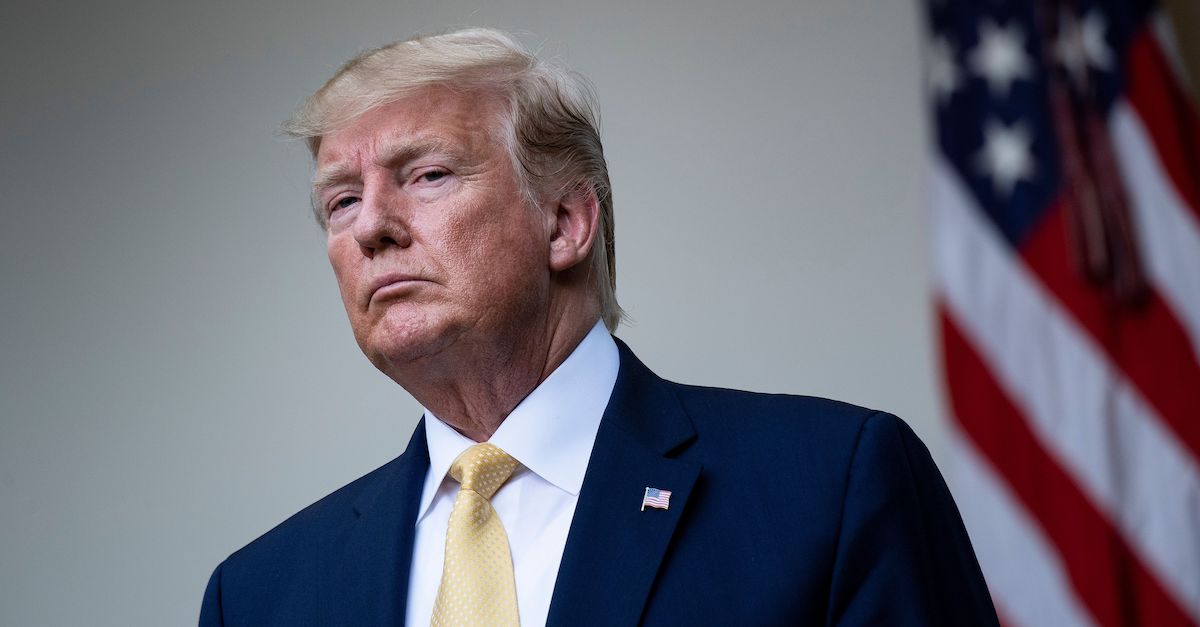
A three-judge federal panel appeared unconvinced by Trump administration arguments in favor of a controversial and unprecedented policy that aims to exclude undocumented immigrants from the U.S. Census-based redistricting process.
On Thursday, the rare trio of judges culled from the U.S. Court of Appeals for the Second Circuit and the U.S. District Court for the Southern District of New York (SDNY) heard oral arguments for and against President Donald Trump‘s July memo addressed to Secretary of Commerce Wilbur Ross which directed his agency to exclude undocumented immigrants from the apportionment base following the 2020 Census.
Opponents of the guidance have noted that Trump’s memo has resulted in severe under-counting–due to lack of responses–in the current and ongoing Census.
ACLU attorney Dale Ho reiterated that point during Thursday’s hearing.
“It is deterring census responses now,” he told the panel, adding that Trump’s memo was stepping on the idea that “everyone counts” for apportionment purposes and telegraphing the false idea that returning the Census questionnaire is effectively a “futile act” for undocumented immigrant communities.
The Trump administration had previously argued, in its briefs, that any alleged confusion is actually due to the media incorrectly reporting the memo’s contents.
“Even in a dry season, it is fair to trace the fire to an arsonist,” Ho countered.
Arguing for the Department of Justice (DOJ) was Assistant to the Solicitor General Sopan Joshi, who claimed that the government cannot even be sued over the guidance because the harm alleged by the plaintiffs–which include the State of New York and the American Civil Liberties Union (ACLU)–are merely speculative.
But, according to Courthouse News‘s Adam Klasfeld, Circuit Judges Peter Hall and Richard Wesley (both George W. Bush appointees) along with District Judge Jesse Furman (who was appointed by Barack Obama) didn’t “seem to be buying it.”
A follow-up question hinted at the panel’s skepticism:
Judge Hall asks him: How many people would have to be “unchilled” by a ruling blocking Trump’s memorandum for the plaintiffs to have the right to sue?
Is one enough?
DOJ’s Joshi punts: “It would have to be non-speculative.”
— Adam Klasfeld (@KlasfeldReports) September 3, 2020
Judge Furman went on to say the government’s argument that alleged harms are too speculative to grant the plaintiffs’ standing to sue is substantially similar to an argument that the SDNY and the U.S. Supreme Court have rejected in the recent past.
In the unanimous opinion barring the inclusion of the “citizenship question” on Census forms, the high court explicitly rejected the administration’s speculation attack on standing.
From that ruling, at length:
The Government contends, however, that any harm to respondents is not fairly traceable to the Secretary’s decision [to include the citizenship question], because such harm depends on the independent action of third parties choosing to violate their legal duty to respond to the census. The chain of causation is made even more tenuous, the Government argues, by the fact that such intervening, unlawful third-party action would be motivated by unfounded fears that the Federal Government will itself break the law by using noncitizens’ answers against them for law enforcement purposes. The Government invokes our steady refusal to “endorse standing theories that rest on speculation about the decisions of independent actors,” particularly speculation about future unlawful conduct.
But we are satisfied that, in these circumstances, respondents have met their burden of showing that third parties will likely react in predictable ways to the citizenship question, even if they do so unlawfully and despite the requirement that the Government keep individual answers confidential.
“Both I and the Supreme Court [rejected the speculation theory],” Furman said.
[image via BRENDAN SMIALOWSKI/AFP via Getty Images]